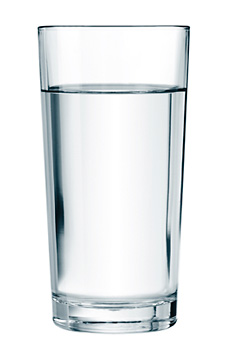Hard water is the most common problem found in the average home. Hard water is water that contains dissolved hardness minerals above 1 GPG.
Calcium, manganese and magnesium are the most common.
Parts per million or grains per gallon are the most common. One part per million (PPM) is just what it says: out of one million units, one unit. Grains, or grains per gallon (GPG) is a weight measurement taken from the Egyptians; one dry grain of wheat, or about 1/7000 of a pound. It takes 17.1 PPM to equal 1 GPG.
If your water tests over 3 GPG hard, you should mechanically soften it. Softening water that is less than 3 GPG, while it makes your shaving and bathing more comfortable, is considered a luxury due to the fact that the cost is more than your savings. Over 3 GPG, you will save enough to pay for the cost and maintenance of a water conditioner.
Water is purified as it runs through a stainless steel chamber containing a UV lamp. As water flows past the lamp, illness-causing microorganisms receive a lethal dose of UV light that attacks their DNA and alters their ability to reproduce. Harmful bacteria and viruses are deactivated, and your family is safe!
By installing a UV system, you can be confident you're protected from chlorine-resistant microorganisms, such as Cryptosporidium and Giardia. All water systems can be vulnerable to these microbes given the right conditions. Cryptosporidium is resistant to chlorine and has become a common waterborne disease everywhere. This microscopic bug was responsible for many deaths and widespread illness when it contaminated the Milwaukee, Wisconsin, drinking water supply in 1993, sickening over 400,000 people and killing over a hundred.
This is a process that is often described as filtration. Reverse Osmosis is sometimes explained as a filter because it is much easier to visualize using those terms. One should remember that osmosis is how we feed each cell in our bodies: As our blood is carried into the smallest of capillaries in our bodies, nutrients actually pass through the cell wall to sustain it's life. Reverse Osmosis is just the opposite: We take water with "nutrients" (in this case, junk) in it, and apply pressure to it against a certain type of membrane, and, presto -- out comes "clean" water.
Contact us today to find out how Water Treatment Consultants can help you with any number of water treatment solutions to suit your needs. We'll be happy to answer any questions you have about water treatment.
|


 What is Hard Water?
What is Hard Water?